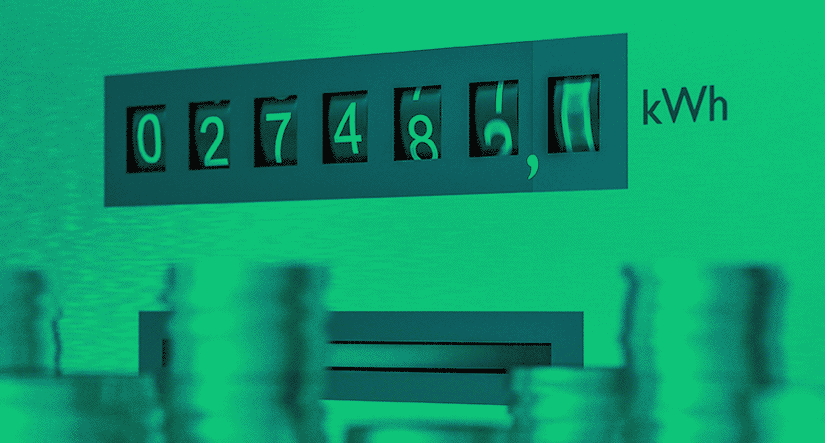Smart Meter Disadvantages: myths, problems, surge pricing?

Smart meters were introduced by UK energy companies beginning in 2011. However, the government’s smart meter rollout has been beset by moving targets, feature-creep, ‘design by committee’ and multiple setbacks, making the previously stated goal of full adoption by 2020 less tenable every day.
Smart Meters: A comedy of errors
Originally, the government called on energy providers to shoulder the responsibility of putting smart meters in 50 million homes by 2019. The entire project, initially estimated to cost around £11 billion, was supposed to bring customers yearly savings of about £26 per household. How did it all go so wrong?
2011
- Cambridge University researcher Ross Anderson criticises the UK smart meter initiative on behalf of the Foundation for Information Policy Research and issues a scathing and prescient critique.
"[Ofgem was] making all the classic mistakes which have been known for years to lead to public-sector IT project failures"
2013
- The original scheme deadline - which was meant to be 2019 - was rightfully seen as too ambitious, even at this early stage. It got pushed back by only one year.
- British Gas was an early adopter of smart meter technology and got a head start with the rollout. However, the preliminary models being put into homes were found to be already obsolete according to new technical specifications set forth by the government (SMETS1 and SMETS2). British Gas was forced to replace them.
2014
- Billing software systems and preexisting energy infrastructure were discovered to be incompatible with the new smart meters. A new deadline for implementation was set, with a March 2016 planned rollout.
2015
- Four years after the initiative launched, just over 1% of homes had smart meters put in. With only around 544,000 smart meters going live at that point, trouble was brewing for the UK smart meter initiative.
- E.ON, one of the Big Six energy providers, received a £7 million fine for missing a smart meter installation target by 0.6%.
2016
- A YouGov poll shows that over 60% of residential energy customers don’t trust their supplier to meet smart meter deadlines. A common reason cited by participants is that IT rollouts “run late, have issues or go over budget”. The government showed no intention of reversing course and the backlash began.
- The Department of Energy and Climate Change conceded that the project was running £1.5 billion over budget at that point.
- GCHQ, a UK intelligence agency, blew the whistle on smart meter cybersecurity. Since all smart meters shared the same encryption key, it meant that the whole system had a single point of failure which could result in hackers “blowing things up” according to a senior Whitehall source.
- The Department of Business, Energy and Industrial Strategy (BEIS) announced that the Data and Communications Company (DCC), which would make the interconnected smart meter infrastructure possible, was delayed again by six months.
2018
- The National Audit Office investigated the smart meter initiative rollout and found that the scheme was nowhere near being on track for the 2020 implementation goal.
- Greg Pytel, an economist overseeing the smart meter rollout for Ofgem, was threatened with criminal prosecution after internally bringing to light irregularities in the scheme, according to a report by The Guardian. Those concerns were never made public because Ofgem invoked a national security ruling, effectively imposing a gag order on most of their employees.
- Over 13 million smart meters were installed by September 2018, only 37 million to go.
2019
- At least one in ten smart meters is currently operating in “dumb” mode and does not send back energy consumption data to the suppliers.
Smart Meter Myths
While smart meters sound great in theory, it’s worth taking a closer look to see if their supposed benefits stand up to scrutiny in this day and age.
Supposed Benefit #1: Smart Meters are 'Smart'

Most smart meters that are currently operating can only communicate with the supplier that installed them. In the event of a customer switching energy companies, the smart meter will lose its functionality and revert to standard meter mode, meaning that the customer would no longer be able to monitor energy use in real-time. This negates the principal benefit put forward for smart meter adoption.
Smart meters merely report energy use and cannot turn off lights or turn on appliances to control energy use. The responsibility for sensible energy saving still falls on us mere mortals. Smart meters have the potential to tap into the Internet of Things (IoT), like connected thermostats and other autonomous home appliances, but they operate on the Zigbee protocol which does not have uniform support across the smart home industry. This means that the potential for UK smart meters to operate home heating and appliances automatically to drive energy savings is hampered by proprietary standards.
Supposed Benefit #2: Smart Meters save money
Smart meters are said to make energy use more visible to residential energy customers through their in-home displays, which reflect consumption data in real-time. This, in turn, is supposed to encourage people to cut down on their energy use.
However, as energy expert Kathryn Porter notes, this presupposes that customers remain engaged past the initial honeymoon phase and actually follow through with making the necessary changes. While it may sound great on paper, studies have shown that few customers use the in-home displays (IHD) after its novelty has worn off.
Supposed Benefit #3: No more Estimated Bills
The ability for smart meters to self-report energy usage back to HQ is often touted as one of their main benefits. While estimated bills are a necessary evil with legacy standard meters, smart meters aren’t necessarily the silver bullet that will cure all our energy billing ills.
Smart meters depend on mobile phone network reception for two-way communication in order to be functional. This is a significant pain point for many customers with mobile network reception issues. For homes in rural areas, or buildings with certain architectural features impacting reception, smart meters will simply not work as intended. This means that a sizeable number of households are cut off from the energy transition by design.
Supposed Benefit #4: Smart meters will save the environment
Let’s get real here: they probably won’t. For smart meters to save the environment, every person in every household in the UK would need to be glued to their in-home display (IHD) in order to lower energy usage in an impactful way.
Without a convenient way for smart meters to talk to smart appliances like boilers or fridges, there is little hope for a net positive effect on the environment.
Smart Meter Problems
Smart meters were invented by Theodore Paraskevakos, a Boeing engineer in the 1970s, who pioneered data transmission over phone lines for telecoms and security applications such as caller ID and remote fire alarms. With this in mind, one would think that smart meter technology would be in the bag, but nothing could be further from the truth.
The SMETS 1 vs. SMETS 2 debacle
SMETS stands for Smart Metering Equipment Technical Specification, and it contains the basic feature set and security requirements set forth by the Department of Energy and Climate Change that all smart meter manufacturers have to abide by.
SMETS 1 meters are essentially able to send back energy consumption data to the energy supplier that installed them over a mobile phone network. The format in which the energy usage information is transmitted is entirely at the discretion of the smart meter manufacturer and the energy supplier that chose them.

While this is all well and good if you live in a country where you only have a handful of suppliers who have agreed on a standard, that is certainly not the case in the UK. With a completely deregulated market where energy customers are encouraged to shop around and switch between a bewildering number of energy providers, SMETS 1 meter compatibility is almost certain to break at the first switch.
SMETS 2 is supposed to rectify this glaring flaw by having a new generation of meters connected to a positively Orwellian centralised energy data clearinghouse called the Data Communications Company (DCC). This allows meters to retain their smart functionality no matter the energy supplier.
While this may sound great on paper, keep in mind that the DCC, the crown jewel of the smart meter network, only came online seven years after the rollout started. Even then it only started to operate “at scale” two years shy of the 2020 goal and yet it is supposed to be the backbone for this whole scheme. However, being fashionably late isn’t the only issue for the DCC. The smart meter installed base remains predominantly in the SMETS1 camp, with its compatibility issues, while installers only started to put in SMETS2 meters fairly recently.
Install cost is passed onto the consumer
Successive policymakers have parroted misleading statements about residential customers not paying a single penny for the smart meter rollout. Centrica, who owns British Gas, says otherwise, claiming that the installation cost will be stealthily added to energy bills.
“the investment in smart meters will cost the equivalent of almost £40 on the bill of each Centrica customer.”
If that name sounds familiar, we’ve mentioned them before - Centrica installed some of the first smart meters in the UK all the way back in 2011 (and was then forced to replace them).
Why is it all going wrong?
As opposed to neighbouring European smart meters schemes, such as those in France and Spain, the UK decided to make a splash, not just in terms of the rollout timeframe but also with design and feature set. Instead of going with an incremental strategy and focussing on limited applications such as facilitating load balancing across the national grid, the UK government decided to cross off every single item in their national energy policy bucket list:
- Reduce energy consumption
- Fight fuel poverty
- End estimated billing
- Herald the arrival of the smart grid
- Foster competition in the energy sector
- Encourage renewable energy use
With expectations set so high, the smart meter rollout was destined to disappoint everyone. Therefore it’s hardly surprising that in the 2017 Conservative party manifesto, the Tories did a subtle about-face and essentially declawed the 2020 smart meter deadline. Smart meters would no longer be required. One word made all the difference:
“everyone will be offered a smart meter by 2020”
Are Energy Suppliers Ultimately to Blame?
We could not believe our eyes here at theSwitch, because, for once, energy companies are not to blame. If there is someone who is responsible for the bloat and overreach of the rollout, the finger would have to be squarely pointed at former energy minister Ed Miliband who initiated the whole mess.
By putting the onus on energy suppliers to install smart meters at their own expense, Ed Miliband made a rookie mistake. Unlike their name suggests, most energy suppliers have little to do with the infrastructure and engineering of getting gas and electricity from power stations into homes. They are nothing more than glorified billing companies with middlemen buying energy at the wholesale level to resell it to residential consumers.
It should be noted that many companies in retail energy struggle with just the basics: to bill customers accurately and provide a modicum of customer service.
You can clearly see why picking companies that often have a poor track record with their core services could be a recipe for disaster. At this point, you might ask, if not the energy providers then who?
The answer, funnily enough, can be found across the channel by looking closely at how other countries approached the smart meter conundrum.

Denmark, Spain, Italy, and even New Zealand all based their staggered rollouts on Distribution Network Operators (DNO). These are companies or organisations whose sole purpose is to ensure that power flows smoothly from the national grid to residential households. They ensure what is often called last-mile service right up to your home.
The UK has nine regional DNO companies for electricity and one for gas. They specialise in responding to maintenance needs, infrastructure upgrades, power cuts and gas leaks at the local level and have the unparalleled engineering know-how to problem solve important faults. This is yet another reason why they would have been the ideal partners to helm the smart meter rollout, as opposed to the aforementioned energy suppliers.
While the UK government decided to rush into smart meters and throw caution to the wind, other countries did not share such temerity. Belgium, the Czech Republic, Latvia, Lithuania, Portugal, and Slovakia all extensively researched the viability of switching to smart meters. They unanimously concluded that the cost-benefit just wasn’t in favour of smart meters. Germany went as far as hiring noted consulting firm EY to evaluate smart meters on a national scale. The conclusion was that smart meters “would be economically unreasonable for the majority of German consumers”.
Meanwhile in the UK, after two negative independent smart meter reports, Ed Miliband ordered a third that conveniently came out in favour of the rollout and the rest is history. Third time’s the charm, one could say.
Smart meters and surge pricing
Just like Uber and other ridesharing services that jack up their pricing based on demand or special events, energy companies are open to the idea of applying the same concept to gas and electricity, enabled by smart meters. With this type of tariff, taking a shower at the wrong time could turn out to be very expensive.
"Instead of having two charge rates [economy 7 tariffs] the price of energy will change every half hour, so when solar and wind generation are low and usage is high the price of electricity will rise steeply.”
If surge pricing for electricity comes to pass, comparing energy tariffs would become significantly harder because of the near-constant unit rate fluctuation making a straight comparison almost impossible. Smart meters are supposed to encourage competition by encouraging energy switching in their SMETS2 incarnations, but surge energy pricing would resoundingly undercut that promise.
Can the Smart Meter fiasco be fixed?
The smart meter rollout is too far gone for any substantive changes to be made. However, UK politicians and energy stakeholders (Ofgem, DECC, BEIS, generators, distributors and providers) must learn from the smart meter rollout and apply the lessons learned to the next steps of the energy transition.
The main takeaways of what went wrong with the smart meter rollout are:
- Ignoring credible concerns from energy experts is perilous.
- Service companies do not have a good track record.
- Pick more experienced partners.
- Start small and evaluate before going nationwide.
- Avoid creating single points of failure when centralizing UK energy infrastructure.
